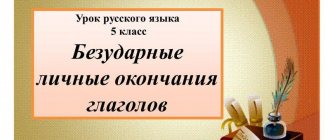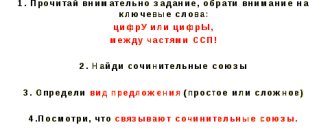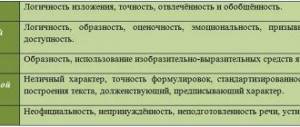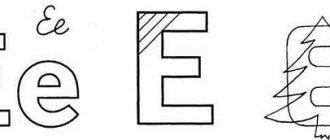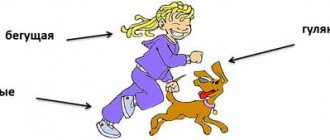Final review in 7th grade
Final review in 7th grade
Author Legotskaya Vera Sergeevna,
teacher at MBOU "Gymnasium No. 5" in Bryansk
Copy the text by inserting missing letters, opening parentheses, and adding missing punctuation marks.
Complete the tasks after the text.
My thoughts were interrupted by my dad. He stopped by to see me... wondering what his daughter was doing... and also so enthusiastically (n,no). Of course, I showed him my drawings of the pattern, shared my thoughts (on) the color, and dad tried..muttering something (un)determined and disappeared.
You should always tell the truth. I was once again convinced of this. If I start to invent something now and then hide (t,t) in an awkward manner, I (cannot) avoid a serious conversation and all sorts of admonitions.
After fiddling with the pattern, I moved on to the most important thing: cutting out blanks from fabric, that is, from sheets, of course. The dress was very wise(n, nn)y: the top was made of pink silk, on the back there was an awesome slit for wings; an underskirt, thicker, flared (n, nn), then another one made of (white) pink chiffon, and also a (t, d) made from a very thin yellow material. I would like to add some more white(n, nn) trim, but I was afraid that it would make the dress too heavy and would I be able to do everything neatly enough.
When I was done with cutting out the blanks (n, nn), I slightly baited them and asked Fenechka to start measuring.
The (little) interesting cartoon ended and Fenechka, burning with curiosity, fluttered lively (n, nn) onto my lap.
1. Write out the auxiliary parts of speech from the first paragraph in three columns: prepositions, particles, conjunctions.
2. Write out all the adverbs from the second paragraph.
3. From the third paragraph, write down all the special forms of the verb.
Answers
My thoughts were interrupted by my dad. He looked at me, wondering what his daughter was doing, and so enthusiastically. I, of course, showed him my drawings and patterns, shared my thoughts on color, and dad, muttering something vague, disappeared.
You should always tell the truth. I was once again convinced of this. If I start inventing something now and hiding in embarrassment, I won’t be able to avoid a serious conversation and all sorts of admonitions.
After fiddling with the pattern, I started on the most important thing: cutting out blanks from fabric, that is, from scraps, of course. The dress was very sophisticated: the top was made of pink silk, on the back there was an awesome slit for wings; an underskirt, thicker, flared, then another one made of white and pink chiffon, and even trimmed with a very thin yellow material. I would also like to trim it with bleached braid, but I was afraid that it would make the dress too heavy, and whether I could do everything neatly enough.
When I was done with cutting out the blanks, I slightly baited them and suggested that Fenichka start trying them on.
The uninteresting cartoon ended, and Fenechka, burning with curiosity, animatedly fluttered onto my lap.
1. Prepositions conjunctions particles
same
To
about
2. Always, now, embarrassed.
3. Fiddled, awesome, flared, bleached.
Spelling cards for 7th grade
Cards for spelling work in 7th grade
1. Spelling adverbs
Open the brackets and explain the spelling graphically.
Turn (to) side, rush (to) heights, look (to) the distance, (to) the distance of fields, meet (in) secret, (slightly) slightly, cross (on) cross, exactly (in) exactly, side (about) )side, (thirdly), (in) a friendly manner, (in) ours, (in) Latin, walk (slowly), take (more) more, fall backwards..., hit backhand..., it was unbearable to wait..., get married ..., approach (from) the left..., look (at) the right..., known (from) a long time ago..., buy (in) installments, divide (into) two, jump (on) the move, speak (not) loudly, answer (not )it’s stupid, it’s (not) interesting to tell, but it takes a long time.
2.
Spelling NOT with different parts of speech.
Open the brackets and explain the spelling graphically.
(Not) learning (n...)what, (not) trusting (n..)who, (not) noticing fatigue, far (not) the worst option, (not) decisive character, (not) a hike that was not successful because of the rain, fact (not) verified, (not) worth racking your brains about, the wound is not at all (not) dangerous, (not) visible field,
(not) easy to answer, (not) a vanquished army, (not) thinking (n..) about whom, the river (not) deep, but shallow, the sky today (not) blue, there were (not) two of them, answer (not) ) prepared,
(not) unhappy because of (not) pleasant things, (not) despite (not) hardships.
3. Letters O-E-E after sibilants in different parts of speech.
Insert the missing letters and explain the spelling graphically.
Iron...k, flow...t, hedgehog...howl, circle...k, thicket...ba, lattice, stove...noe, decided, alien...th, good...go, rook...m, careful...t, captivating... new, softer..., condensed...nka, hot..., silky, son...k, still..., muted...n, border...m, sh....se, stew...nka, jump...k, shoulders...m, sh... in, fresh..., amazed, writhing...vka, dissected...n, doctor...m, sh...sweat, steep...ny, cherry plum...vy, save...t, melodious..., night...wka, burning...g hands, burning ...g hand.
4.
Spelling b after sibilants in different parts of speech.
Insert the missing letters and explain the spelling graphically.
Big sushi..., native Muscovite..., saved... things..., a lot of sweet pears..., the bear is clumsy..., increase...the speed, reach... the top, rest a little..., unfasten... buttons, milestone passed..., sharp pencil..., waiting for meetings... , treasure island..., lily of the valley... fresh... and fragrant..., the surrounding landscape..., the guy is broad-shouldered..., don’t worry... worry in vain, rush at a gallop..., treat... a friend, don’t feel... pain, help... grandmother, near roadside groves..., empty beach..., fire tornado..., getting married..., smoke from fires..., dark clouds..., climbing a tree, throwing it wide open..., hitting backhand... .
5. Spelling Н-НН in different parts of speech.
Insert the missing letters and explain the spelling graphically.
A fried goose, pies fried in oil, a foggy morning, a long coat, a handsome man, an inscribed triangle, a clay jug, a mistake corrected, a fair organized by sponsors, weaving... a tablecloth, a tablecloth woven with gold, wooden utensils, defective goods, an unexpected guest, a paramilitary detachment, a ruddy face, the work was done, the meeting was organized, distilled water , confused answer, chicken broth, said interest... oh, said word, unexpected joy, unconnected prisoner, recruiting agent, uncooked potatoes, things bought in the store., sacred fire, glass doors, art gallery, porridge...a
6. Spelling of suffixes of participles and gerunds.
Insert the missing letters and explain the spelling graphically.
fighting, prophetic, seeing, hearing, biting, knitting, holding, dozing, breathing, caring, hanging, seeking, stabbing, coloring, barking, thinking, hating, foaming, melting, enduring, disturbing, feeling, chirping, visible, fulfilling, hesitating, violated, hated, streamlined, decided, heard, soared, endured, settled, detained, sealed, shot, overheard, lost, wasted, scattered, destroyed, shot, honored, heard _new, seen_in, painted_in, took off_v.
7. Spelling of prepositions, conjunctions, particles.
Insert the missing letters and explain the spelling graphically.
(In) the course of... a week, I haven't... trained... even once. 2. I trained a lot, but the results were low. 3. Where... and I look, there is thick rye everywhere. 4. He n... gave me n... one book. 5. There are n... drops of water in the bucket. 6. I’ve been to these places several times. 7. In the summer I will go n...where n...to. 8. Where has he... been! 10. He n...could n...answer. 11. N... trees, n... bushes n... caught on the road.12. He n... objected, we also agreed. 13. The earth was as beautiful as everything around.14. What (would) he... do, w...what would... work out. 15. You need to work (for) a long time in order to achieve a result.16. What (b) happened to him without us? 17. It wasn’t cool at night either. 18. It is unlikely that this book will interest readers. 19. Where did he hide? 20) Small, for (that) daring.
8.
Hyphenate spelling of words
Open the brackets and graphically explain the spelling.
Be (according to) yours, (according to) your advice, from (under) the table, (half) circle, (in) three, (for) two, (in) small, cheerful (as) before, go (on) the same route , somewhere (anywhere), (over) the Don, (in) the third grades of school, (in) relatives, something (something), (in) friendly, (semi) darkness, (in) third, come, everything (still), (half) army, (half) sheet, (zoo) store, (north) west, (cloak) tent, (ever) green, (barely) barely, (strong) tightly, (headquarters) apartment, ( dark green; (iron) concrete, decided (still), newspaper (magazine), (half) Europe, (half) the world, (in) one, (in) circle, (at) less, (prime) minister, (vice) admiral.
9. Isolation (selection) of participial and participial phrases.
Fill in the missing letters and fill in the missing punctuation marks, explaining them graphically. Perform parsing.
Only in the evening, afraid of getting lost(?) in the dark, the tourists returned to the path leading to the camp.4
(Not) seeing (n...)what (around) them they walked along a path that...wonderfully meanders between the trees. The trees stood (not) swaying, (not) trembling and (not) rustling their leaves. Only the aspen leaves, glittering with raindrops, whispered in the wind, shaking off the moisture. They moved along the rain-moistened grass, hurrying and trying to get to the place faster.
10. Punctuation before conjunctions in simple and complex sentences
Fill in the missing letters and fill in the missing punctuation marks, explaining them graphically. Perform parsing.
Each of us loves the side where you were born, grew up or live(?). And yet, nature has its favorites, which it endows with special beauty. Such is Baikal, famous for its miraculous power, greatness and power. I (h, c) remember how my friend and I walked for a long time along the shore of our sea... Baikal was so clean and quiet that far away in the water the stones shimmered with colors. 4
My comrade was shocked by the wild and stormy beauty and it literally fell on him. He still (doesn’t) know the winter Baikal (that’s why he enthusiastically steps on the thin transparent ice). Now he knows that Ba can be considered one of the wonders of the world
Punctuation. Punctuation analysis - Repetition of what was learned in grades 5-6
Objectives: to repeat the rules for placing punctuation marks in sentences with homogeneous members, addresses, direct speech, and in complex sentences; to develop the ability to perform morphemic and punctuation analysis, to compose sentences according to schemes.
Personal UUD. Personal self-determination. Cultivating interest in the Russian language. Cognitive UUD. Synthesis of knowledge. Analysis of linguistic phenomena. Communicative UUD. Ability to enter into dialogue and conduct a conversation.
During the classes
I. Checking homework. Students complete teacher assignments:
- Remember that you study syntax.
- Name the third unnecessary concept, justify your answer:
■ predicate, addition, circumstance (the concept of predicate is superfluous: it is the main member of the sentence, while the next two concepts are called secondary members);
■ addition, circumstance, adjective (the concept of adjective is superfluous: it is a part of speech, and other words are called members of a sentence).
Ex. 9. The test is carried out in the form of a “Linguistic Relay Race”.
II. Repetition of basic punctuation rules.
1. Conversation based on the questions proposed for § 2.
2. Repetition of the rules for placing punctuation marks with homogeneous members. Children read the rules (projected on the screen or presented in printouts), then add the missing punctuation marks for homogeneous terms; graphically explain the conditions for their selection (work directly in the printouts).
The sun rose from across the sea and flooded the calm, flat water with light.
(O and O)
He works according to all the rules with concentration.
(Oh, Oh)
The slanting rain still hit my face and poured down my neck and into my sleeves.
(O and O O and O)
The raft quietly and silently moved forward in the midst of mute silence and impenetrable darkness.
(Oh and Oh Oh, Oh)
A lonely female voice sang, sometimes sadly and vaguely, sometimes cheerfully and cheerfully.
(then O and O, then O and O)
For hundreds of miles there was no smoke, no yurt, no human trace. (A. Serafimovich)
(no O, no O, no O)
You never know peace day or night. (Phraseological unit)
3. Repetition of the rules for placing punctuation marks when addressing. Read the rules, analyze the placement of punctuation marks in sentences with addresses (orally). The diagrams of these sentences are written down in notebooks.
Everything, dear, must be done from the heart. (K. Paustovsky) Today, my brother, we won’t study. (A.N. Tolstoy) Thank you, Aunt Sasha. (A.N. Tolstoy) Oh Lizanka, are you on your own? (A. Griboyedov)
4. Working with the textbook. Ex. 11. Commentary letter. First, students are asked to consider patterns for placing punctuation marks in direct speech.
III. Summing up the lesson. Conversation on questions:
— What is punctuation?
— What did you find difficult in the lesson?
IV. Homework. Ex. 10.
